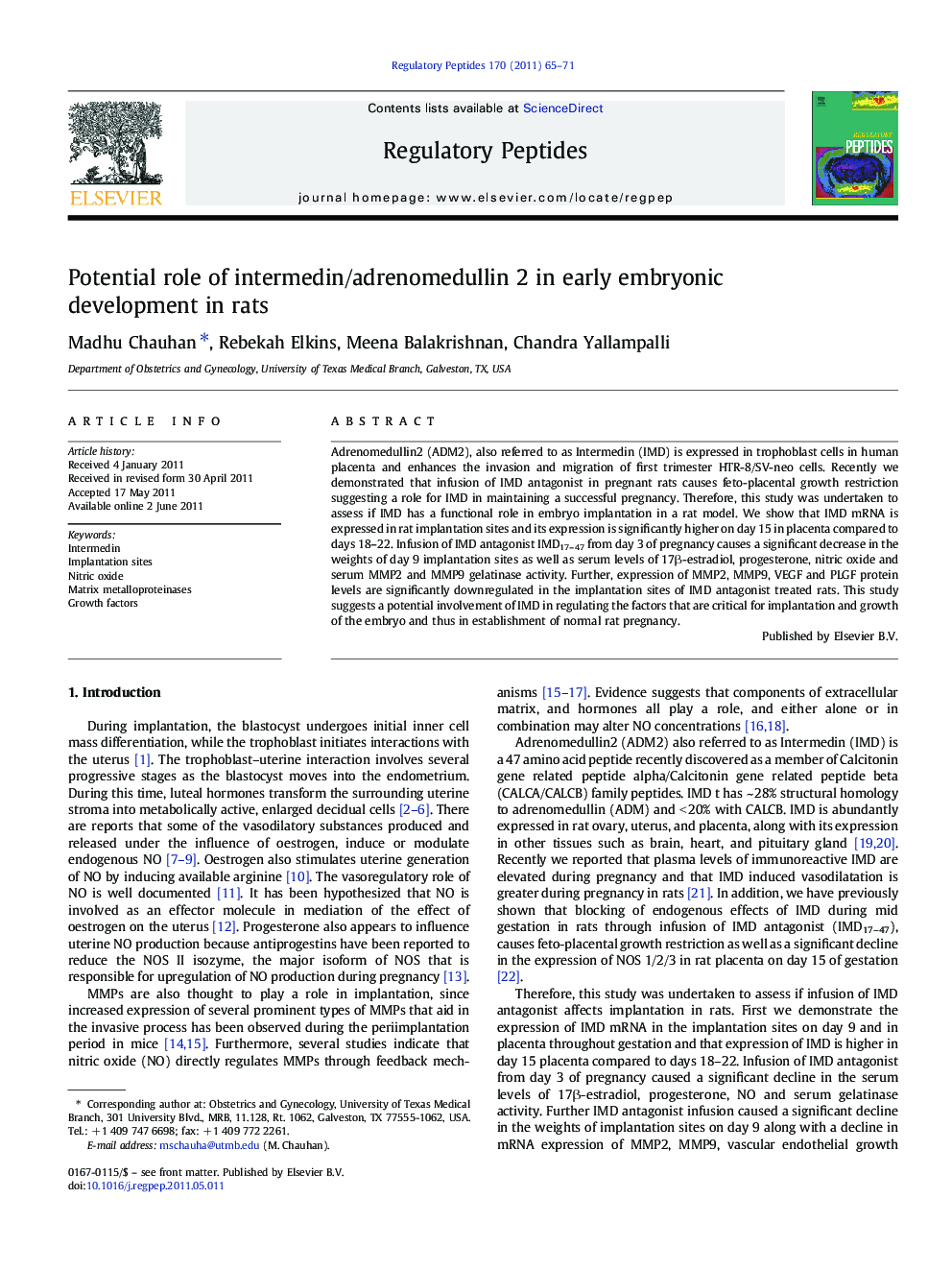| Article ID | Journal | Published Year | Pages | File Type |
|---|---|---|---|---|
| 2022601 | Regulatory Peptides | 2011 | 7 Pages |
Adrenomedullin2 (ADM2), also referred to as Intermedin (IMD) is expressed in trophoblast cells in human placenta and enhances the invasion and migration of first trimester HTR-8/SV-neo cells. Recently we demonstrated that infusion of IMD antagonist in pregnant rats causes feto-placental growth restriction suggesting a role for IMD in maintaining a successful pregnancy. Therefore, this study was undertaken to assess if IMD has a functional role in embryo implantation in a rat model. We show that IMD mRNA is expressed in rat implantation sites and its expression is significantly higher on day 15 in placenta compared to days 18–22. Infusion of IMD antagonist IMD17–47 from day 3 of pregnancy causes a significant decrease in the weights of day 9 implantation sites as well as serum levels of 17β-estradiol, progesterone, nitric oxide and serum MMP2 and MMP9 gelatinase activity. Further, expression of MMP2, MMP9, VEGF and PLGF protein levels are significantly downregulated in the implantation sites of IMD antagonist treated rats. This study suggests a potential involvement of IMD in regulating the factors that are critical for implantation and growth of the embryo and thus in establishment of normal rat pregnancy.
Research highlights► Intermedin antagonist reduces weights of rat implantation sites. ► Intermedin regulates serum levels of 17-β estradiol and progesterone in rat early pregnancy. ► Intermedin antagonist down regulates serum levels of nitric oxide and MMP2 gelatinase activity. ► Intermedin regulates MMP2, VEGF and PLGF at the maternal fetal interface in early rat pregnancy.
